

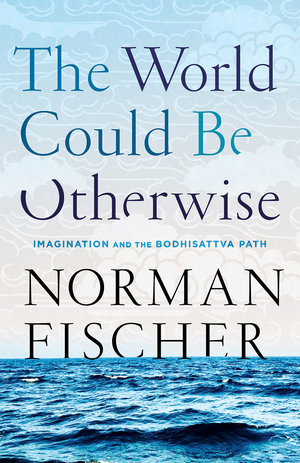
Dear All,
I am pleased to announce that Soto Zen teacher, former Co-Abbot of the San Francisco Zen Center and author Zoketsu Norman Fischer will be offering a very special Zazenkai and Talk to welcome the New Year, SATURDAY JANUARY 5th, LIVE from California and Treeleaf Tsukuba.
More about Norman Fischer ...
Zoketsu Norman Fischer is an American poet, writer, and Soto Zen priest, teaching and practicing in the lineage of Shunryu Suzuki. He is a Dharma heir of Sojun Mel Weitsman, from whom he received Dharma transmission in 1988. Fischer served as co-abbot of the San Francisco Zen Center from 1995–2000, after which he founded the Everyday Zen Foundation in 2000, a network of Buddhist practice group and related projects in Canada, the United States and Mexico. Fischer has published more than twenty-five books of poetry and non-fiction, as well as numerous poems, essays and articles in Buddhist magazines and poetry journals.
From 1970 through 1976, Fischer trained at the Berkeley Zen Center under the guidance of Sojun Mel Weitsman. In 1976, he and his wife moved to Tassajara, a training monastery near Big Sur, where they lived as residential monastics for five years. In 1980, they were both ordained as Zen priests by Zentatsu Richard Baker, from whom Fischer received the dharma name Zoketsu Rinsho. In 1981, they moved to Green Gulch Farm Zen Center in Marin County, California, where Fischer served in various monastic positions including Director, Tanto (Head of Practice), and Co-Abbot from 1981 to 2000. During that time, in 1988, he received Dharma transmission from his longtime teacher, Sojun Mel Weitsman.
From 1995 to 2000, Fischer served as co-abbot of the San Francisco Zen Center (SFZC), first with Sojun Mel Weitsman, and then with Zenkei Blanche Hartman. During his abbacy, Fischer supported the research, drafting and formal institution of a women's lineage chant, alongside the traditional men's lineage chant, during services. Later, with poet and translator Peter Levitt, he supported the drafting of an official women's lineage paper—the first female lineage document in the history of any major world religion—which traces the line of female practitioners from the Buddha's time to the present and recognizes the important historical role of the Zen women ancestors. In 1987, Fischer founded (among others) the Zen Hospice Project at the San Francisco Zen Center, for which he served as board chair for over 20 years.
Fischer is a proponent of interreligious dialogue between the worlds' religions, stating:
"I feel that in our period it is the challenge of religious traditions to do something more than simply reassert and reinterpret their faiths, hoping for loyal adherents to what they perceive to be the true doctrine. Looking back at the last century, with its devastating wars and holocausts and the shock of ecological vulnerability, I have the sense that religious traditions must now have a wider mission, and it is in the recognition of this mission, I believe, that interreligious dialogue becomes something not only polite and interesting, but also essential."
Fischer has written about the concept of God being integral to Judaism and many other religions. In his book Opening to You: Zen-Inspired Translations of the Psalms (Viking, 2002), Fischer replaced the words "God", "King", and "Lord" with the word "You." He explains:
"For many of the religious seekers I encounter, the word God has been all but emptied of its spiritual power. The relationship to God that is charted out in the Psalms is a stormy one, co-dependent, passionate, confusing, loyal, petulant, sometimes even manipulative. I wanted to find a way to approach these poems so as to emphasize the relational aspect, while avoiding the major distancing pitfalls that words like God, King, Lord and so on create."
Fischer has written nine books on Zen, over fifteen books of poetry, and numerous essays and books on writing, poetry, and spirituality. His essays have been published in magazines such as Buddhadharma, Tricycle and Shambhala Sun, and in collections such as Radical Poetics and Secular Jewish Culture (University of Alabama Press, 2010) and The Best Buddhist Writing (Shambhala Sun).
From 1970 through 1976, Fischer trained at the Berkeley Zen Center under the guidance of Sojun Mel Weitsman. In 1976, he and his wife moved to Tassajara, a training monastery near Big Sur, where they lived as residential monastics for five years. In 1980, they were both ordained as Zen priests by Zentatsu Richard Baker, from whom Fischer received the dharma name Zoketsu Rinsho. In 1981, they moved to Green Gulch Farm Zen Center in Marin County, California, where Fischer served in various monastic positions including Director, Tanto (Head of Practice), and Co-Abbot from 1981 to 2000. During that time, in 1988, he received Dharma transmission from his longtime teacher, Sojun Mel Weitsman.
From 1995 to 2000, Fischer served as co-abbot of the San Francisco Zen Center (SFZC), first with Sojun Mel Weitsman, and then with Zenkei Blanche Hartman. During his abbacy, Fischer supported the research, drafting and formal institution of a women's lineage chant, alongside the traditional men's lineage chant, during services. Later, with poet and translator Peter Levitt, he supported the drafting of an official women's lineage paper—the first female lineage document in the history of any major world religion—which traces the line of female practitioners from the Buddha's time to the present and recognizes the important historical role of the Zen women ancestors. In 1987, Fischer founded (among others) the Zen Hospice Project at the San Francisco Zen Center, for which he served as board chair for over 20 years.
Fischer is a proponent of interreligious dialogue between the worlds' religions, stating:
"I feel that in our period it is the challenge of religious traditions to do something more than simply reassert and reinterpret their faiths, hoping for loyal adherents to what they perceive to be the true doctrine. Looking back at the last century, with its devastating wars and holocausts and the shock of ecological vulnerability, I have the sense that religious traditions must now have a wider mission, and it is in the recognition of this mission, I believe, that interreligious dialogue becomes something not only polite and interesting, but also essential."
Fischer has written about the concept of God being integral to Judaism and many other religions. In his book Opening to You: Zen-Inspired Translations of the Psalms (Viking, 2002), Fischer replaced the words "God", "King", and "Lord" with the word "You." He explains:
"For many of the religious seekers I encounter, the word God has been all but emptied of its spiritual power. The relationship to God that is charted out in the Psalms is a stormy one, co-dependent, passionate, confusing, loyal, petulant, sometimes even manipulative. I wanted to find a way to approach these poems so as to emphasize the relational aspect, while avoiding the major distancing pitfalls that words like God, King, Lord and so on create."
Fischer has written nine books on Zen, over fifteen books of poetry, and numerous essays and books on writing, poetry, and spirituality. His essays have been published in magazines such as Buddhadharma, Tricycle and Shambhala Sun, and in collections such as Radical Poetics and Secular Jewish Culture (University of Alabama Press, 2010) and The Best Buddhist Writing (Shambhala Sun).
Our sitting schedule will look like the following although please be prepared for some flexibility and the possibility to run a little long: perhaps 25 minutes of Zazen, a Talk by Norman for 30 minutes or so, and some Questions from our Treeleaf participants. I anticipate the the event will be about 90 minutes.
Susan is the author of several wonderful books, which include ...
- What Is Zen?: Plain Talk for a Beginner's Mind, which we are reading in our "No Words" Book Club (LINK)
This unique introduction to Zen teaching and practice takes the remarkably accessible form of question-and-answer—making it a most useful reference for looking things up. But whether you're a neophyte or a seasoned practitioner, you'll want to read the whole thing. The questioner (Susan Moon) and the answerer (Norman Fischer) are old friends, each with a unique gift for articulation, and their friendly conversation covers not only the basics but a range of issues. - The World Could Be Otherwise: Imagination and the Bodhisattva Path, to be released in 2019 (LINK)
An imaginative approach to spiritual practice in difficult times, through the Buddhist teaching of the six paramitas or "perfections"--qualities that lead to kindness, wisdom, and an awakened life. In frightening times, we wish the world could be otherwise. With a touch of imagination, it can be. Imagination helps us see what’s hidden, and it shape-shifts reality’s roiling twisting waves. In this inspiring reframe of a classic Buddhist teaching, Zen teacher Norman Fischer writes that the paramitas, or “six perfections”—generosity, ethical conduct, patience, joyful effort, meditation, and understanding—can help us reconfigure the world we live in. Ranging from our everyday concerns about relationships, ethics, and consumption to our artistic inspirations and broadest human yearnings, Fischer depicts imaginative spiritual practice as a necessary resource for our troubled times. - Training in Compassion: Zen Teachings on the Practice of Lojong (LINK)
Lojong is the Tibetan Buddhist practice that involves working with short phrases (called "slogans") as a way of generating bodhichitta, the heart and mind of enlightened compassion. Though the practice is more than a millennium old, it has become popular in the West only in the last twenty years or so—and it has become very popular indeed, because it's a practice that one can fit very well into an ordinary life, and because it works. It's in this spirit that Norman Fischer offers his commentary on the lojong slogans. He applies Zen wisdom to them, showing how well they fit in that related tradition, but he also sets the slogans in the context of resonant practices throughout the spiritual traditions. He shows lojong to be a wonderful method for everyone, including those who aren't otherwise interested in Buddhism, who don't have the time or inclination to meditate, or who'd just like to morph into the kind of person who's focused rather than scattered, generous rather than stingy, and kind rather than thoughtless. - Taking Our Places: The Buddhist Path to Truly Growing Up (LINK)
... and many more.This engaging contemplation of maturity addresses the long neglected topic of what it means to grow up, and provides a hands–on guide for skilfully navigating the demands of our adult lives.... Fischer began to investigate our preconceptions about what it means to be "an adult" and shows how crucial true maturity is to leading an engaged, fulfilled life. Taking Our Places details the marks of a mature person and shows how these attributes can help alleviate our suffering and enrich our relationships. Discussing such qualities as awareness, responsibility, humour, acceptance, and humility, Fischer brings a fresh and at times surprising new perspective that can turn old ideas on their heads and reinvigorate our understanding of what it means to be mature.
I would like to fill our hangout and show Norman a big turnout. If there is a large number of folks, I may try to open a second hangout that day as well. I NEED AS MANY FOLKS AS POSSIBLE, ESPECIALLY THOSE FAMILIAR WITH HANGOUTS, WHO CAN COMMIT TO JOIN US LIVE FOR THIS ZAZENKAI! If you are interested and can come, please EMAIL (jundotreeleaf[@]gmail.com). It will be worth your time.
I will post immediately below more information on our Hangouts and a list of folks committing to attend.
Let's all get together to welcome Zoketsu! I believe this is his first experience with this kind of netcast Zazenkai, or with a "not bound by walls" Sangha like ours, I would like to make a nice impression.
Gassho, Jundo
SatTodayLAH

REQUESTED DONATION
PS - It would be polite for those participating, and anyone watching and benefiting even at a later time, to offer a little donation to the teacher, for even a great Zen Teacher must eat and pay the rent. I will leave it to what you can afford, but I might suggest $20 per person ... more or less than that depending on your means and ability. This is a bargain, compared to one dinner out, a movie, let alone seats at an Elton John concert. Also, do not forget his books, which are treasures.
His paypal account is the best place to make a donation:
Insert the following email address: zoketsu[a]gmail.com

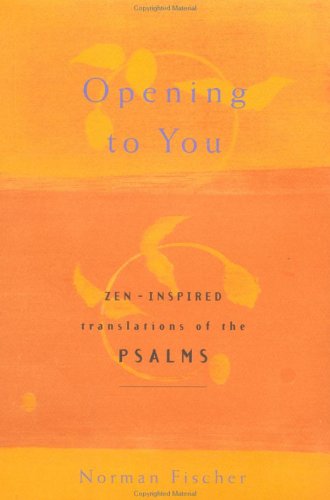
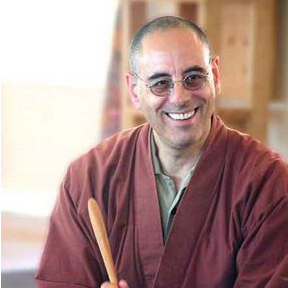
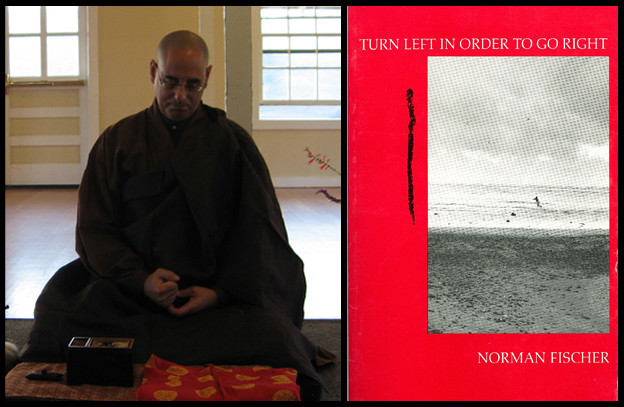
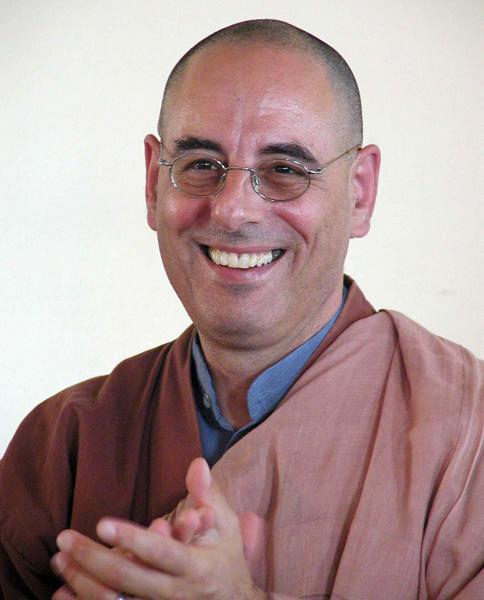


Comment